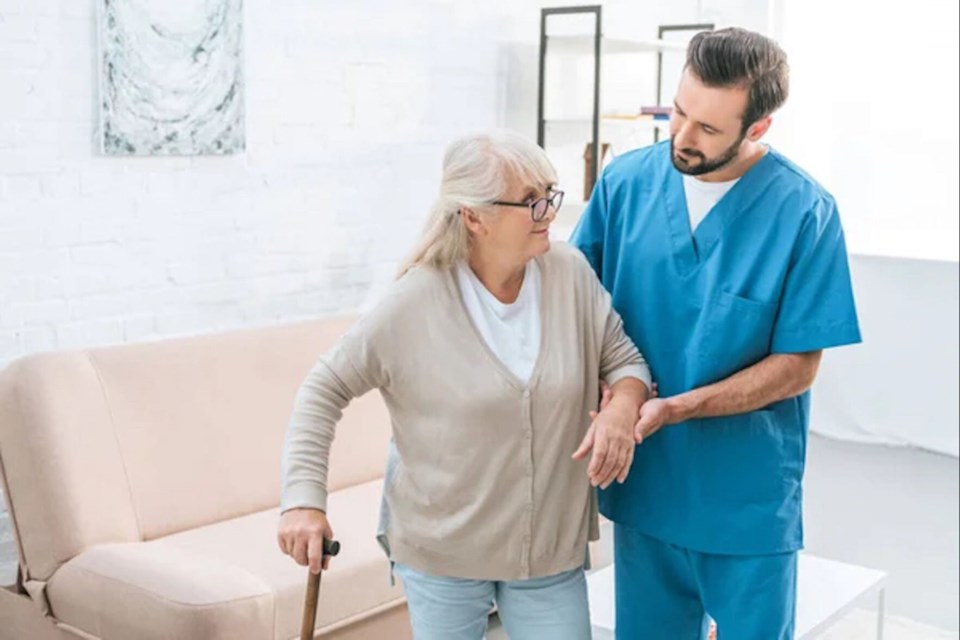For millions of older Americans, falls are a serious concern. In fact, more than 3 million seniors in the U.S. need emergency treatment as a result of a fall every year, and falls are the leading cause of injury-related deaths among seniors nationwide.
In Arizona, there were 1,005 falls resulting in deaths for people 65 and older in 2021, according to the most recent CDC data available.
Nobody wants to experience a fall, of course. But especially for older adults, falls pose significant health risks. Fall-related injuries can range from broken bones and head injuries to the effects they can have on your long-term independence.
Even though a single fall is by no means guaranteed to cause an injury, falling once can double your chances of falling again.
Preventing falls
The most immediate risk, of course, is that of a physical injury that can seriously affect your ability to maintain your independence. Even if you don’t experience a physical injury, a fall can affect you emotionally and mentally, and lead to an unfortunate cycle.
Falling once can lead to a fear of falling again. This fear can make you withdraw from your regular, everyday activities. Less physical activity can make you weaker, which can make it easier to experience a fall again.
Research suggests several risk factors, in fact, that can contribute to the likelihood of suffering a fall…. But there are some simple steps you can take to mitigate those risks:
-
Proper footwear with non-skid soles, and avoiding stairs while just wearing socks, can decrease your likelihood of falling.
-
Vision problems contribute to falls, too. So, it’s important to keep annual appointments with your eye doctor, and make sure your glasses or contacts prescriptions stay up to date. Also, if you wear bifocals or progressive lenses, keep in mind they can sometimes distort the distance of things like floors and stairs.
-
Certain medications, like sedatives, antidepressants and some common over-the-counter drugs, can affect your balance. Talk to your doctor if you take any medications that you’ve noticed make you feel dizzy or unsure on your feet.
-
Difficulty with walking or keeping your balance, along with general lower body weakness, can also increase the risk of falling. Use a cane or a walker if you need help walking and consider incorporating balance and strength training into your daily routine.
What to do if you fall
Unfortunately, preventing falls is like most matters related to our health. You can’t completely remove the risk, so it’s just as important to know the steps to take after you fall:
-
First, take deep breaths and try to relax.
-
Don’t get up before figuring out if you’re injured. If you are hurt, and get up too quickly, there’s a danger of making an injury worse.
-
If you can, get up — safely — roll over onto your side and rest for a couple moments. This will give your blood pressure a chance to adjust. Slowly get to your hands and knees and crawl to a sturdy seat or chair. Rest your hands on the chair and rise to a kneeling position, with one knee raised and the other still on the floor. Only then should you attempt to slowly rise the rest of the way and sit in the chair.
-
If you can’t get up on your own, don’t push it. Call 911 and wait for help to arrive.
Dr. Kimberly Klatt is a primary care physician with Optum - Arizona.



